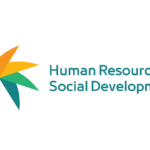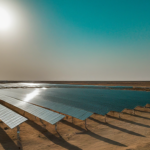
“It is the lowest-cost producers — such as Kuwait, Saudi Arabia, and the United Arab Emirates — that will be able to keep selling their oil the longest….What’s more, stronger climate policies should focus not just on the greenhouse gases emitted by burning a fuel, but the carbon intensity of the entire production cycle. Most Gulf Arab states are very efficient producers.”
-Jason Bordoff, director of the Centre on Global Energy Policy at Columbia University and a former White House energy policy adviser, arguing in a new post that “everything you think about the geopolitics of climate change is wrong.” [columbia.edu]

“We are in touch with companies from all over the world to come and tap into the kingdom’s opportunity in renewable energy. However, I’ve seen firsthand how Iowa is one of the top producers of wind energy in the U.S. and the world, and we wish to partner with them.”
-Abdulrahman Bakir, Vice President, Investment, Attraction and Development, Saudi Ministry of Investment, during a recent visit to Des Moines, Iowa. [AgriMarketing]

“Let’s agree that given the global economic situation, full diversification won’t happen by 2030. To completely wean a giant economy like Saudi off oil, it will require at least 50 years more. So as long as oil is with us, make more money out of it if you can.”
-An unnamed source to Reuters, discussing how as Saudi Arabia works to diversify it’s economy, it still intends to maximize oil revenue as long as possible. With almost 20% of the world’s proven reserves and production costs of just $4 a barrel, “Aramco believes it can undercut competitors and carry on making money even when lower oil prices make it unprofitable for rivals,” Reuters reports. [Reuters]

“The Palestinian cause is a just cause but its advocates are failures, and the Israeli cause is unjust but its advocates have proven to be successful. That sums up the events of the last 70 or 75 years…There is something that successive Palestinian leadership historically share in common: they always bet on the losing side, and that comes at a price.”
-Prince Bandar bin Sultan, former Saudi Ambassador to the United States, in an interview with Al Arabiya. [Al Arabiya]

“A sustainable recovery plan with energy and climate actions would boost global economic growth by 1.1% per year, save or create 9 million jobs per year, and avoid a rebound in emissions, putting them into structural decline.”
-Excerpt from the B20-IEA Joint Statement on Energy Transitions. [B20 Saudi Arabia]

“Everyone in the industry wants to work in the above-the-line jobs, they want to be directors, producers, actors, and screenwriters while we lack below-the-line jobs such as operators, art directors, and supervisors. What will attract international productions to Saudi Arabia is when we have the below-the-line crew. If we don’t have them it means we don’t have the basis of the industry.”
-Hajar Al-Naim, Saudi filmmaker, discussing the in-depth Saudi Film Skills report by the British Council in Saudi Arabia; the first of its kind coming only two two years after the Saudi government lifted a 35-year ban on the film industry in the country. [Arab News]

“One of the most fascinating and encouraging decisions by the Saudi leadership in recent years has been to launch a series of interfaith initiatives designed to build closer ties between Muslims, Christians and Jews…As part of that effort, the Saudi Ambassador to the United States, Princess Reema bint Bandar al-Saud, hosted a private dinner at her residence in northern Virginia on Monday night for eight Evangelical leaders, including myself. While our conversations were off the record, I can report that we covered a wide range of issues over the course of our three hours together.”
-Joel C. Rosenberg, editor and New York Times best-selling author discussing a recent interfaith dinner hosted by Saudi Ambassador to the United States Princess Reema bint Bandar. [allarab.news]

“The circular carbon economy builds on the principles of circular economy and applies them to managing carbon emissions: to reduce the carbon that must be managed in the first place, to reuse carbon as an input to create feedstocks and fuels, to recycle carbon through the natural carbon cycle with bioenergy, and, unique to circular carbon economy, to remove excess carbon and store it.”
-King Abdullah Petroleum Studies and Research Center’s (KAPSARC), Guide to the Circular Carbon Economy (CCE), contributed to the G20 energy ministers’ communique endorsing CCE as, “a holistic, integrated, inclusive and pragmatic approach to managing emissions.” [KAPSARC]

“Registered contractors in the kingdom employ around 3.2 million people, of which 13% to 14% are Saudi nationals. We must also take into consideration that the contracting sector accounts for 6% of the Saudi GDP.”
-Thabet Al-Sawyeed, Governor of the Saudi Contractors Authority, in his opening remarks for the 2020 Leaders in Construction KSA Summit. Currently, there are approximately 166,000 registered contractors working in Saudi Arabia, of which approximately 98.5% are small and medium contractors. [Construction Week]

“What we have are small businesses, for example, if I go to the beach, there’s a small company who knows that city and knows how to do scuba-diving in that place. That’s where we are right now. So all of the industry is trying to bring that ecosystem and human capital together.”
-Muzzammil Ahussain, executive vice president of the consumer travel unit at Saudi-listed Seera, observes that, although there are no current major international management company (DMC) in Saudi, there are a number of developing DMCs working with Saudi Tourism Authority to build up this infrastructure. [Skift]











